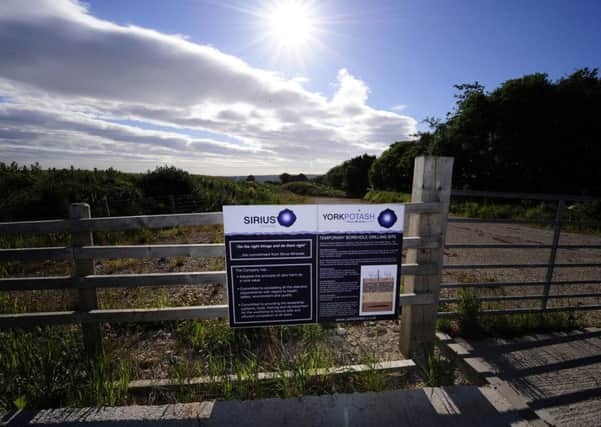Tests reveal Sirius potash proves to be an effective fertiliser


The tests showed that polyhalite, a multi-nutrient form of potash found at the mine, improved soya bean yield by up to 16 per cent and corn yield by three per cent when compared with traditional fertilisers.
The mine was given the go-ahead at a special planning meeting in Whitby last month and the Government has ruled out holding a public inquiry into the proposals.
Advertisement
Hide AdAdvertisement
Hide AdThe soya bean trials were completed at Texas A&M and the University of Sao Paulo, while the corn results came from a study carried out at North Dakota State University.
They showed that polyhalite yields return £16 per hectare more than traditional corn yields.
They also found that with the use of polyhalite, 50 per cent less potassium oxide was needed in the Texas trials and 66 per cent less in the Brazilian trials.
The US and Brazilian soya bean markets account for 32 per cent and 30 per cent respectively of a global market worth £76bn.
Advertisement
Hide AdAdvertisement
Hide AdThe US accounts for 29 per cent of the global corn market, equating to £170bn a year.
Chris Fraser, managing director and CEO of Sirius, said: “These trials not only display the potential for polyhalite to provide an increased financial return from higher yields, but also demonstrate important input savings.”
Sirius said the mine has the world’s largest and highest grade deposit of polyhalite, which contains potassium, sulphur, magnesium and calcium.